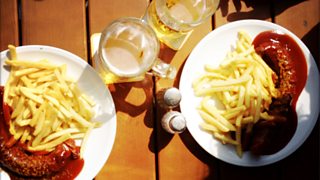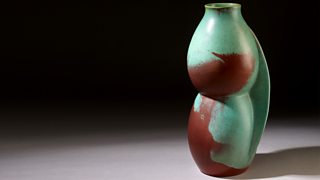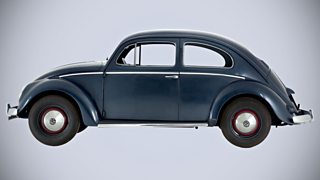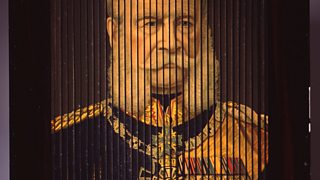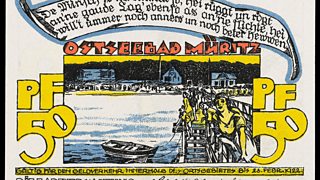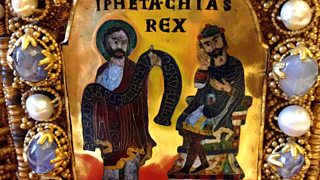Emergency money, inflationary banknotes and Nazi propaganda
In , Neil MacGregor dips into the British Museum's collection of emergency money or notgeld.
'There is a great deal of it because as there was no longer an effective national currency for the lower denominations, every town and city had to make its own,' says Neil. 'As the central state faltered, regional memories and loyalties revived, and found an exuberant, colourful expression of local identity and civic pride.'
An example from Mainz promotes the city’s attractions, including the statue of Gutenberg. The Baltic resort of Müritz depicts the chic seaside fun on offer there. Eisenach shows Martin Luther translating the New Testament.
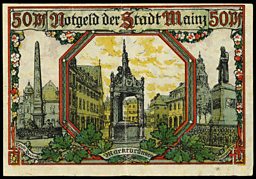

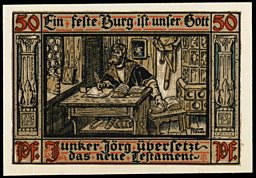
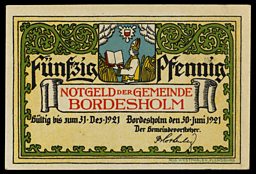
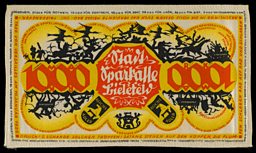
'The interest of these notes is not just topographical. They present a remarkable survey of the public mood in the years 1919-1923, as the Weimar Republic struggled into life,' says Neil MacGregor.
In , Neil examines a 25 pfennig note from the community of Tiefort with a citation from Goethe's Faust. He also sees a note from 1917, the so-called turnip winter when people fed on turnips. The inscription on the side, durch halten den not ist kriegs gebot, means enduring hardship is the law of war.
Neil also examines a note from Bittefeld, a coal producing area close to Berlin, showing coal being taken from Germany to France as reparations after the war.
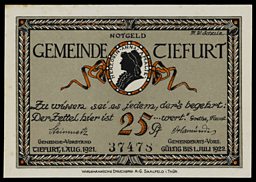
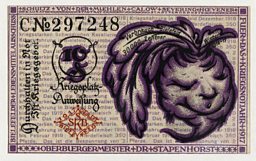
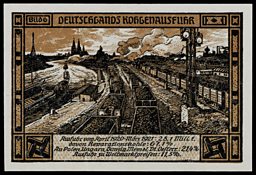
'This intriguing emergency money, representing small sums, was about to be overwhelmed by one the most catastrophic and destructive inflations in history,' says Neil MacGregor. 'The great hyperinflation was ignited by a combination of Germany's post-war economic weakness and the difficulties of making the reparation payments demanded by the victors.'
'Even when the currency was stabilized, the Nazis found a new use for all the old worthless hyperinflation banknotes,' says Neil.
On the reverse of this note is an anti-Semitic cartoon which Neil describes: 'A huge, radiant swastika hangs in the sky and in front of it cowers a caricature of a Jewish financier, with hooked nose and huge grasping hands. There is text first in Yiddish and then in German: "Germans! With this scrap of paper the Jew has cheated you out of your honest money. Give him your answer. Vote Völkisch Sozial"'.
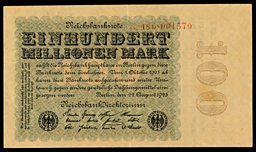
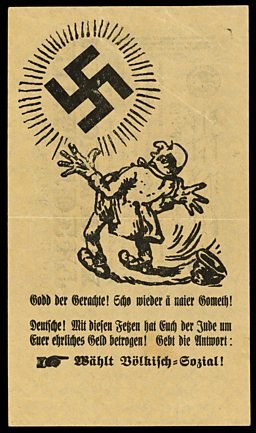
Features about Germany and the objects in this series
-
![]()
Beer riots and sausage snacks demonstrate a devotion to the national diet.
-
![]()
Degenerate art and other facts from this fascinating nation.
-
![]()
See photos and videos of this diverse collection of products and sculptures.
-
![]()
A selection of the most striking objects described by Neil MacGregor.
-
![]()
Neil MacGregor dips into the British Museum's collection of emergency money or notgeld.
-
![]()
See close-up images of the replica Reichskrone now in Aachen.
